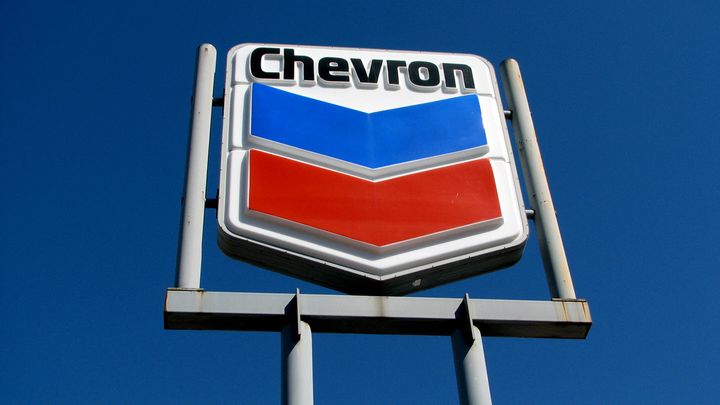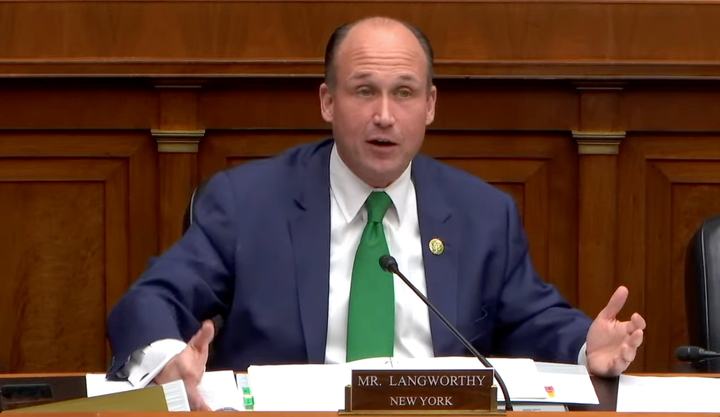This article was first published at Eyes on the Ties, a news site by LittleSis.org.
Most people in the U.S. need to pay federal income taxes – but dozens of the most profitable U.S. corporations do not.
A recent report by the Institute on Tax and Economic Policy finds that 60 profitable companies that are on the Fortune 500 list paid no federal income taxes in 2018. These include many well known brands, such as Netflix, JetBlue, Goodyear, and Avis. The list also include Amazon – the most valuable company in the world, whose CEO, Jeff Bezos, is the world’s richest person.
All told, the 60 companies on the list did not merely avoid paying $16.4 billion in federal income taxes – they actually received a net tax rebate of $4.3 billion.
While Amazon’s presence on the list has garnered headlines, what’s less noted is that a whopping 40% – 24 of the 60 companies – are tied to the oil, gas, and utilities industries.
The fossil fuel and utilities companies on the list include powerhouses like Chevron, Halliburton, Kinder Morgan, and Duke Energy, as well as some lesser known firms. Of the 24 companies, 13 are categorized as utilities and 9 are categorized as oil, gas, and pipelines companies. Another two are in other sectors but do significant business with the oil and gas industry.
With two dozen major fossil fuel-tied companies paying zero dollars in federal income taxes, or even receiving tax rebates, while they also report big profits, one thing is clear: the very industry that is driving rising carbon emissions and our climate crisis is also, in effect, being subsidized to do so by the U.S. tax structure.
What top oil, gas, and utilities companies avoided taxes?
We’ve provided a table at the end of this article that lists the 24 profitable Fortune 500 oil, gas, and utilities companies that avoided paying federal taxes in 2018. These 24 companies reported a total of $38.119 billion in 2018 income, and they received $2.059 billion in tax rebates. This means that nearly half of the $4.3 billion in tax rebates to the 60 companies that the report identified went to these 24 companies.
To put it another way: on the whole, fossil fuel-tied corporations that are driving our climate crisis disproportionately benefited from paying no federal income taxes.
With a 21% corporate income tax on profits of U.S. companies, these companies should have paid over $8 billion in taxes.
The 13 electric utilities companies on the list reported a total of $19.117 billion in 2018 income but received $1.215 billion in tax rebates. The 9 oil, gas, and pipeline companies on the list took in $18.284 billion in income and received $580 million in tax rebates.
The top beneficiaries of the tax system among these companies included:
- Duke Energy, with a $647 million tax rebate, resulting in an effective federal income tax rate of minus-21%
- Wisconsin Energy, with a $218 million tax rebate, resulting in an effective federal income tax rate of minus-19%
- AECOM had a $122 million rebate (minus-51% effective tax rate) and Celanese had a $142 million rebate (minus-30% effective tax rate). Both companies do significant business with the oil and gas industry (more on this below)
Chevron and EOG Resources also received $181 million and $304 million in tax rebates, respectively, though their effective tax rates were only minus-4% and minus-7% since they bring in so much income.
Here are some other observations about the companies on the list:
- Top fracking & drilling companies. Nine of the companies in the report are top U.S. oil and gas drillers. Corporations like Chevron, Devon Energy, EOG Resources, Pioneer Natural Resources, and Occidental Petroleum dominate the list of top overall U.S. oil and gas producers, as well top drillers in fracking epicenters like Texas and Pennsylvania. Two companies – Occidental and Chevron – are the first and second biggest drillers in the Texas Permian Basin, the world’s busiest oil field, and they are currently in a bidding war to acquire Anadarko Petroleum to further consolidate their market share.
- Controversial pipeline projects. The U.S. corporate tax structure is also subsidizing companies that are behind controversial oil and gas pipeline. Dominion and Duke are the two biggest owners of the 600-mile Atlantic Coast Pipeline, which has spurred intense opposition that has contributed to significant delays in the pipeline’s construction. Until last year, Kinder Morgan owned the Trans Mountain Pipeline, which transports dirty tar sands oil from Alberta, Canada.
- Powerful utilities. 13 major electric utilities are on the list of 60 tax-avoiding corporations – nearly a quarter of the list. They are: Ameren, American Electric Power, Atmos Energy, CMS Energy, Dominion Resources, DTE Energy, Duke Energy, FirstEnergy, PPL, Public Service Enterprise Group (PSEG), UGI, Wisconsin Energy, and Xcel Energy. 12 of those 13 are among the top 20 of the largest U.S. utilities based on market value (only UGI fails to make the cut). Some of these utilities, like Dominion and Duke, may be the most power corporate entities in the states where they are headquartered. Some of them have also faced controversies over everything from dumping coal ash to expanding gas operations to begging for bailouts. The fact that all these companies paid no federal income taxes appears more egregious considering that many utilities are granted monopolies (or near-monopolies) in the areas where they operate and are guaranteed profits by government regulators.
- Other companies that profit from oil and gas operations. Some companies on the list profit from the fossil fuel industry even as they aren’t central players. AECOM, the engineering and construction powerhouse, has oil and gas clients across the globe and works on fossil fuel infrastructure projects. Celanese, a chemical company, makes plastic materials that are used in oil and gas extractionoperations and in pipelines.
Here is a visual map of ten of the most well-known oil, gas, and utilities companies that paid no federal incomes taxes in 2018:
How did these corporations avoid paying federal income taxes?
The Institute on Tax and Economic Policy report surveys how the corporations on the list avoided paying federal incomes taxes. Quoting from the report, here are two tax breaks it describes that apply to the fossil fuel industry and utilities in particular:
Fossil Fuel Tax Subsidies
Oil and gas tax breaks including depreciation and percentage depletion helped Pioneer Natural Resources zero out its federal income taxes on $1.2 billion of U.S. income in 2018. Occidental Petroleum used the enhanced oil recovery credit to reduce its taxes by $158 million last year.
Alternative Energy Tax Subsidies
A number of companies took advantage of alternative-energy tax breaks as well. Duke Energy enjoyed $129 million in renewable energy production tax credits in 2018. The so-called Bipartisan Budget Act of 2018 expanded these credits. DTE Energy reduced its taxes by $223 million using production tax credits. WEC Energy reported $12 million in production tax credits, and Xcel Energy claimed $75 million in wind production tax credits. CMS Energy also reported renewable electricity production tax credits of $14 million, and Dominion Energy claimed $21 million.
Oil and gas companies benefit from a number of tax breaks – indeed, by one account, oil and gas production will see over $36 billion in tax subsidies from 2017 to 2026. For more information on some of the most significant tax breaks for oil and gas companies, check out this overview – which argues that oil and gas companies significantly exaggerate the loss in production and jobs that would come with an end to their industry-specific tax preferences.
And while there’s broad agreement about the need for the government to play a role in expanding alternative energies, in this case we can see alternative energy subsidies being used to make companies whose primary business is still fossil fuels more profitable.
For more information on how the U.S. government subsidies the fossil fuel industry, check out this report by Oil Change International from October 2017.
Table of Fossil Fuel & Utilities Companies that Avoided Paying Federal Incomes Taxes
| Company | U.S. Income (in millions) | Federal Tax (in millions) | Effective tax rate |
| AECOM Technology | $238 | -$122 | -51% |
| Ameren | $1,035 | -$10 | -1% |
| American Electric Power | $1,943 | -$32 | -2% |
| Atmos Energy | $600 | -$10 | -2% |
| Celanese | $480 | -$142 | -30% |
| Chevron | $4,547 | -$181 | -4% |
| Cliffs Natural Resources | $565 | -$1 | 0% |
| CMS Energy | $774 | -$67 | -9% |
| Devon Energy | $1,297 | -$14 | -1% |
| Dominion Resources | $3,021 | -$45 | -1% |
| DTE Energy | $1,215 | -$17 | -1% |
| Duke Energy | $3,029 | -$647 | -21% |
| EOG Resources | $4,067 | -$304 | -7% |
| FirstEnergy | $1,495 | -$16 | -1% |
| Halliburton | $1,082 | -$19 | -2% |
| Kinder Morgan | $1,784 | -$22 | -1% |
| MDU Resources | $314 | -$16 | -5% |
| Occidental Petroleum | $3,379 | -$23 | -1% |
| Pioneer Natural Resources | $1,249 | — | — |
| PPL | $1,110 | -$19 | -2% |
| Public Service Enterprise Group | $1,772 | -$97 | -5% |
| UGI | $550 | -$3 | 0% |
| Wisconsin Energy | $1,139 | -$218 | -19% |
| Xcel Energy | $1,434 | -$34 | -2% |
| Totals | $38,119 | -$2,059 |
Source: https://itep.org/notadime/
Related:



